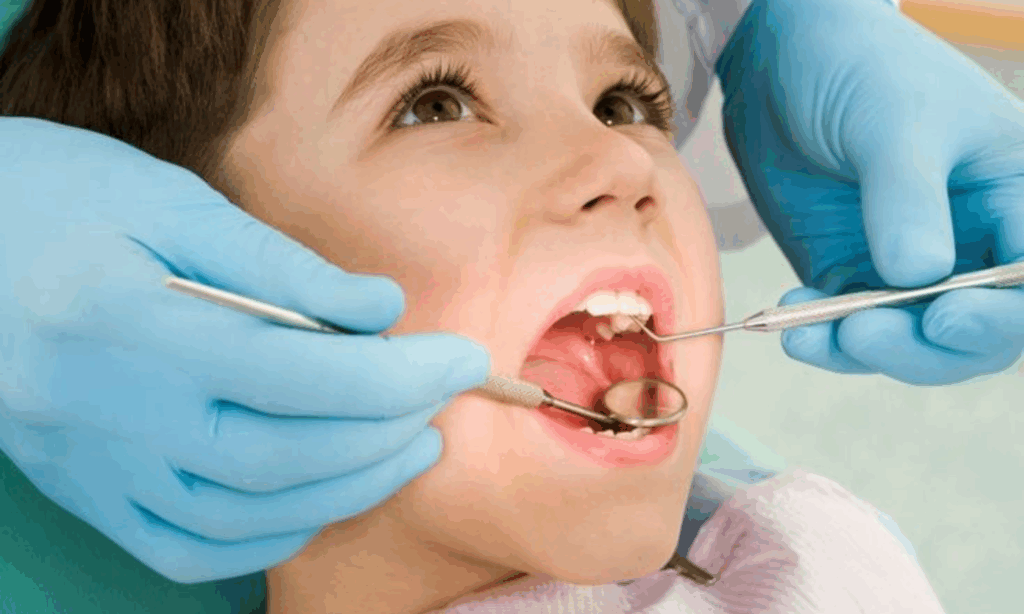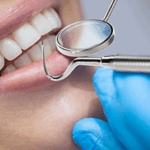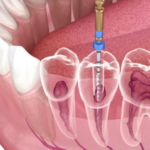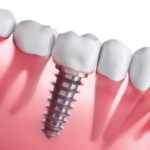
Children’s dental health is an important part of their overall well-being. Early dental care sets the foundation for lifelong oral health, and addressing common dental issues can help prevent more severe problems in the future. From teething troubles to cavities and gum disease, children are susceptible to various dental issues. As a parent, being proactive in managing these concerns is crucial. In this blog, we will highlight common dental issues in children and offer tips on how to avoid them, with a focus on the expert care provided by Dr. Anjali Mendhe at Dentaverse Dental Clinic in Kharadi, Pune.
1. Cavities (Tooth Decay)
One of the most common dental issues in children is tooth decay, or cavities. Children are more prone to cavities because of their sweet tooth and because their enamel (the outer protective layer of the tooth) is thinner and more vulnerable than that of adults. Cavities can develop when bacteria feed on sugars left in the mouth, producing acids that erode tooth enamel.
How to Avoid Cavities:
- Limit Sugary Snacks and Drinks: One of the most effective ways to prevent cavities is to limit the consumption of sugary foods and drinks, especially between meals. Beverages like soda, juice, and sugary snacks can contribute to tooth decay.
- Encourage Regular Brushing and Flossing: Children should brush their teeth twice a day with fluoride toothpaste. Starting this habit early helps reduce the risk of cavities. Flossing once a day is also crucial to remove food particles between teeth.
- Visit the Dentist Regularly: Early and regular visits to the dentist, like those provided at Dentaverse Dental Clinic, can help detect cavities before they become serious problems.
2. Gum Disease (Gingivitis)
Gum disease, also known as gingivitis, occurs when the gums become inflamed due to a buildup of plaque and bacteria. While this is more common in adults, children can develop gingivitis, especially if they neglect their oral hygiene.
How to Avoid Gum Disease:
- Teach Proper Brushing Technique: Make sure your child brushes their teeth properly, gently brushing along the gum line to remove plaque and prevent gum disease.
- Regular Dental Check-ups: Regular check-ups at the dentist can ensure early detection of gingivitis and allow for prompt treatment.
- Good Nutrition: A balanced diet with plenty of fruits, vegetables, and dairy products can help keep gums healthy and strong.
3. Teething Troubles
Teething is a natural process that occurs when your child’s first set of teeth starts to emerge. While teething is inevitable, it can be uncomfortable for children, often causing irritation, swelling, and drooling.
How to Manage Teething:
- Teething Rings: Teething rings or cool washcloths can help soothe sore gums. Cold items like chilled teething rings can numb the discomfort temporarily.
- Gentle Gum Massage: Use a clean finger to gently massage your baby’s gums to alleviate pain.
- Over-the-Counter Pain Relievers: Consult your dentist or pediatrician before giving over-the-counter medications like infant acetaminophen to manage teething pain.
4. Thumb Sucking
Thumb sucking is a common habit among children, particularly infants and toddlers. While it is typically harmless in early childhood, prolonged thumb sucking can lead to dental problems such as misaligned teeth or an altered bite, especially if the habit persists beyond the age of 4 or 5.
How to Stop Thumb Sucking:
- Encourage Positive Reinforcement: Encourage your child to stop thumb sucking by offering praise and rewards for progress.
- Distraction Techniques: Offer comfort through alternative means, such as a stuffed animal or blanket, when your child feels the urge to suck their thumb.
- Consult a Dentist: If thumb sucking continues past a certain age, consult a pediatric dentist like Dr. Anjali Mendhe at Dentaverse Dental Clinic to explore options to help break the habit.
5. Dental Trauma and Injuries
Children are active and often prone to accidents that can lead to dental trauma, such as broken or knocked-out teeth. Whether due to sports injuries, falls, or rough play, dental injuries can be painful and affect your child’s smile.
How to Prevent Dental Injuries:
- Mouthguards for Sports: If your child participates in sports, ensure they wear a properly fitted mouthguard to protect their teeth from injury.
- Supervised Play: Encourage safe play and ensure your child is supervised during high-risk activities.
- Addressing Trauma Immediately: If your child experiences a dental injury, visit a dentist immediately. In some cases, quick treatment can save a tooth.
6. Misaligned Teeth and Bite Issues
Many children develop dental issues related to misaligned teeth or bite problems, such as overbite, underbite, or crossbite. These issues can affect both the appearance and functionality of a child’s teeth.
How to Address Misaligned Teeth:
- Consult an Orthodontist: If your child has crooked or misaligned teeth, it’s essential to visit an orthodontist. Early assessment is crucial for determining the best time for treatment, which may include braces or other orthodontic appliances.
- Healthy Habits: Encourage your child to avoid behaviors that can worsen misalignment, such as nail-biting or chewing on hard objects.
7. Bad Breath (Halitosis)
Bad breath, or halitosis, is common in children and can be caused by several factors, including poor oral hygiene, dry mouth, or even certain foods.
How to Avoid Bad Breath:
- Ensure Good Oral Hygiene: Make sure your child brushes their teeth properly, including their tongue, which can harbor bacteria responsible for bad breath.
- Hydrate: Encourage your child to drink plenty of water to keep their mouth moist and help wash away food particles.
- Visit the Dentist: If bad breath persists, it may be a sign of an underlying issue, such as gum disease or cavities. A visit to Dentaverse Dental Clinic will help identify the cause.
8. Dental Sensitivity
Some children experience tooth sensitivity, particularly to hot or cold foods and drinks. This can be caused by thin enamel, cavities, or gum recession.
How to Avoid Dental Sensitivity:
- Use a Soft-Bristled Toothbrush: Ensure your child uses a soft-bristled toothbrush and fluoride toothpaste to minimize tooth sensitivity.
- Avoid Acidic Foods: Limit acidic foods and drinks, which can wear down enamel and increase sensitivity.
9. Early Loss of Baby Teeth
While it is natural for children to lose their baby teeth, early or premature loss of baby teeth can cause misalignment or difficulties in speech and chewing.
How to Address Early Tooth Loss:
- Consult the Dentist: If your child loses a tooth too early, consult your dentist for advice on how to prevent future complications.
- Good Oral Hygiene: Maintain a proper oral hygiene routine to help ensure the remaining baby teeth stay healthy until they naturally fall out.
Summary:
Dental health is essential for your child’s overall well-being, and preventing common dental issues can set them up for a lifetime of healthy teeth and gums. By following these practical tips and ensuring your child receives regular dental check-ups at a trusted clinic like Dentaverse Dental Clinic in Kharadi, Pune, you can address and avoid potential issues before they become significant problems. Dr. Anjali Mendhe and her team are dedicated to providing high-quality, gentle care for children, making sure that their dental experience is positive and comfortable.
If you’re looking for expert advice and care for your child’s dental health, contact Dentaverse Dental Clinic today to schedule an appointment with Dr. Anjali Mendhe.




